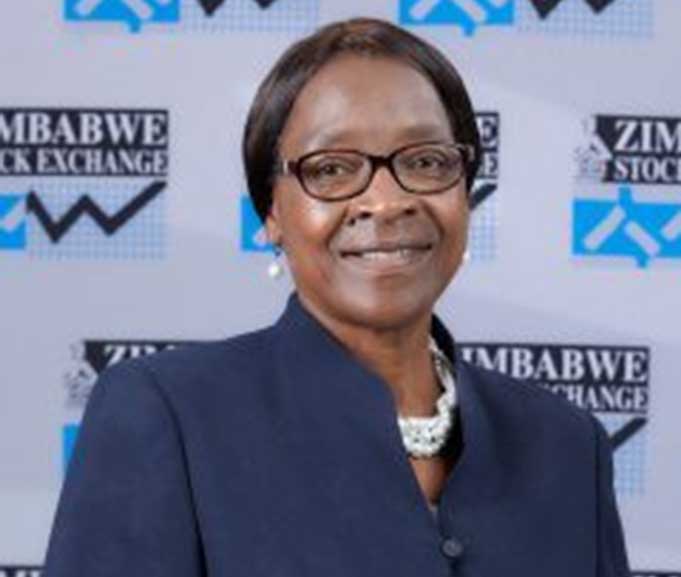
BY TATIRA ZWINOIRA ZIMBABWE Stock Exchange (ZSE) chairman Caroline Sandura says the continued devaluation of the local currency could lead to a drop in investors on the main bourse.
This comes as the local currency ended last month at $366,27 against the US dollar, on the forex auction, a 26% jump from May and almost 330% above the same period last year. The local currency averaged $365,2, against the greenback, on the interbank forex market.
On the parallel market, the Zimbabwe dollar depreciated by nearly 45% since May to around $750 at the end of June.
As a result, investors and companies have turned to trading on the ZSE as a hedge leading to its total market capitalisation rising over 300% to over $3 trillion, as of June 15, from $688,19 billion early last year.
“With the continued COVID–19 pandemic after effects as well as the continued devaluation of the Zimbabwean dollar the economic depression brought by debt distress and arrears the Zimbabwe’s economic situation is projected to remain challenged in the coming future,” Sandura said, in the ZSE’s recent 2021 Annual Report.
“This in turn affects the stock market performance as clients will have less disposable income. However, as the government continues with the reforms as well as effective measures being taken to stabilize foreign exchange and avoid excessive money creation we are looking forward to a positive economic growth in the near future.”
The inflation hedging strategy of investors and firms alike was amid the depreciation of the local currency that caused the annual inflation rate to reach 191,6% in June, up from 131,7% in the prior month.
Thus, most activity on the main bourse is inflationary, not supported by proper valuations.
- Chamisa under fire over US$120K donation
- Mavhunga puts DeMbare into Chibuku quarterfinals
- Pension funds bet on Cabora Bassa oilfields
- Councils defy govt fire tender directive
Keep Reading
“Regulatory risk remains high and ZSE will be pushing to implement a surveillance system to help monitor the activities by trading participants,” ZSE chief executive officer Justin Bgoni said.
“The currency depreciation and high inflation will still favour investment in the equities market going forward but will dampen capital raising in local currency.”
However, the total market capitalisation has since fallen to $2,42 trillion as of writing this article following the capital gains tax being reviewed from a flat rate of 20% to 40% for shares held for a period less than 270 days, in May.
Also, measures announced last week including the central bank raising the interest rate by a whopping 120 percentage points to 200%, from 80%, has made borrowing more expensive.
These two adjustments have led to sell offs on the ZSE which local financial security firm, IH Securities predicted would happen as investors return to “valuation fundamentals as ‘bad money’ leaves the market”.
“The ZSE turned bearish in the closing week of June as it plunged below its support level following more stringent measures announced in the MPS (Monetary Policy Statement) earlier this week. The mainstream ZSE All Share Index plummeted by -7,8% in the week to close at a 3-months low of 19,791.94 points,” reads an analysis by local firm Equity Axis, published in last week’s edition of our sister paper, the Zimbabwe Independent.
“Losses were attributed to heavy sell-offs in market heavies and medium caps which slumped by -9,18% and -4,64% respectively, outweighing the 6,19% surge in penny stocks.
“The month of June closed at a nominal loss of -14,22% which is the second worst monthly outturn in over 22 months. Overall nominal year-to-date gains were trimmed to 82,88%, down from 168% at the end of April as the bourse has been sailing in the negative for 2 months now.”










